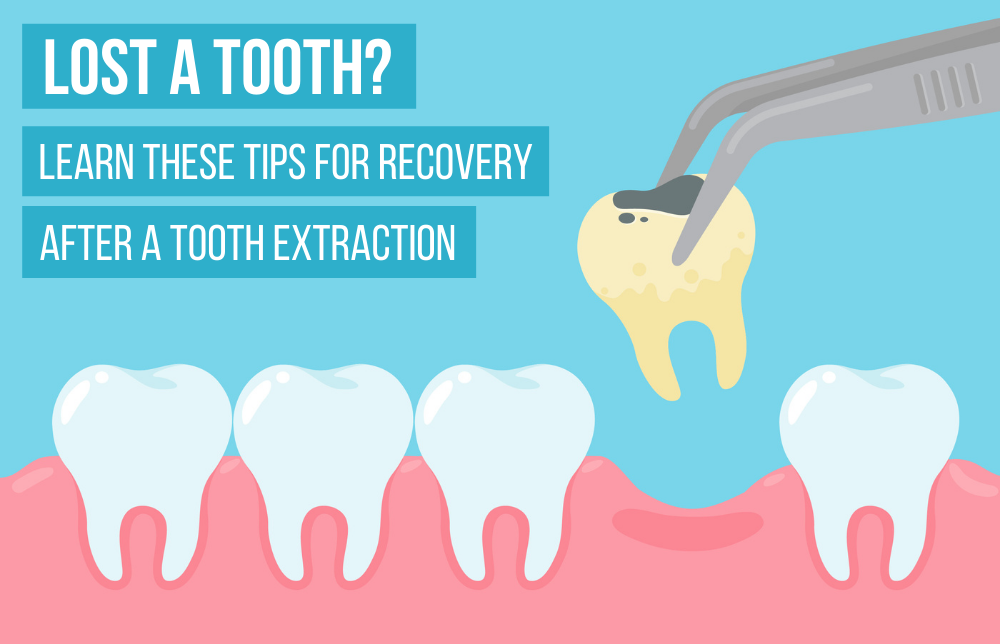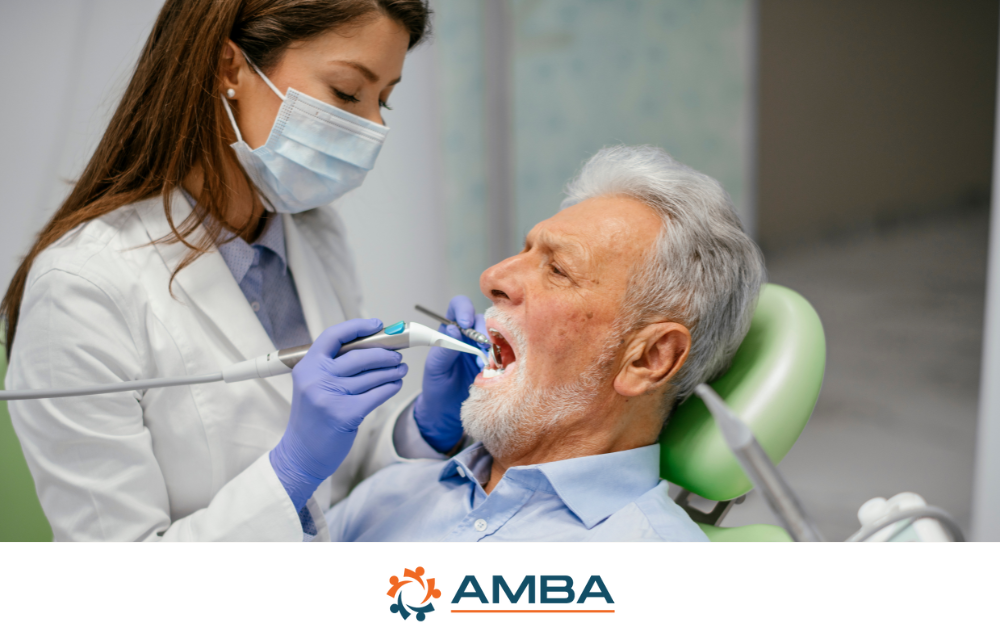
Lost A Tooth? Learn These Tips For Recovery After A Tooth Extraction.
February 1, 2022
Many dentists would say the only thing their patients hate more than learning they need a tooth extraction is the actual procedure to pull the tooth. But tooth extraction is surprisingly not as bad as it once was. Thanks to advances in anesthetics, tools, and procedures, you and your dental professional can have a less stressful and painful time while you’re in the chair.
Still, your recovery after the procedure is largely up to you. Following the right steps after a tooth extraction is important for a successful recovery. These tips can help ensure you’ll be smiling again as soon as possible.
What is Tooth Extraction?
Tooth extraction is the removal of a tooth. A variety of reasons can be the reason your dentist recommends a tooth extraction. Some of these issues include:
- A damaged or broken tooth.
- Advanced tooth decay which can no longer be treated with a filling or root canal or crown.
- Periodontal disease (including bacteria and plaque beneath the gums)
- Crowded or extra teeth or a smaller jaw
Steps for a Successful Recovery After Tooth Extraction
Some bleeding for up to 24 hours after your extraction is to be expected. Many people report experiencing pain, which may take up to 3 days to alleviate.
The first two days after a tooth extraction is when the most aftercare and attention is needed. Some things you can do to ensure the extraction succeeds and to alleviate discomfort include:
- Leave the gauze your dentist placed in your mouth for a few hours. Then you can change it as often as needed. This will allow the blood clot to form at the extraction site where eventually tissue and bone will form.
- Rest for at least 24 hours after the extraction.
- Avoid rinsing your mouth right away, as it can dislodge the clot that's forming and affect the time it takes to heal.
- Avoid drinking with a straw and spitting.
- Avoid hot liquids, alcohol, or use any tobacco products for at least three days following the procedure.
- Take pain relievers as prescribed. They can also reduce inflammation. You can also reduce or minimize swelling with an ice pack on your cheek for 10-20 minutes at a time.
You'll likely have a follow-up appointment after two weeks for your dental professional to assess your healing and to ensure you're on your way to a successful recovery.
After the third day, the blood clot should begin to form. At this point, be sure to rinse your mouth with a saline rinse or warm salt water to kill bacteria. It is also recommended to eat soft, healthy foods and snacks that don't require a lot of chewing, like soups, yogurts, and similar foods. Avoid foods like nuts, hard candy, steak, and chewing on ice.
Recovery time and healing differ for everyone. If you begin to feel increased pain, nausea, or any unusual symptoms, don’t hesitate to ask your dentist. Your health is their #1 concern!
Who knows? Simply by following these steps for recovery, the next time you hear "It's like pulling a tooth!", you just might respond, "So it's not that bad?"
MRTA and AMBA have Dental Plans to help keep your mouth in the best possible health. Find out how our plans can help cover everything from routine check-ups to procedures like the cost of extractions, root canals, crowns, and more. Sign up for the plan that’s right for you now at www.AMBAdentalvision.com or call 866-979-0497.
RECENT POSTS

An Ambulance Trip Is Stressful: With MASA, the Cost Doesn’t Have to Be
People who require an emergency ambulance trip frequently ask the same question upon receiving the bill: “Why was the
Read More

AMBA’s Essential Insights in Dental Health: Understanding Cavities
Have you ever experienced pain or noticed persistent sensitivity in your teeth? You might have a cavity. Cavities are common,
Read More

Smart Holiday Season Safety Tips for Travelers
Whether to get together with loved ones or to get away from it all, people love to travel during the holiday season. In fact,
Read More

Play the Long Game: 5 Important Reasons to Purchase Long-Term Care Insurance
When it comes to your health, it’s essential to plan for the unexpected. While this is important at any age, it's
Read More

